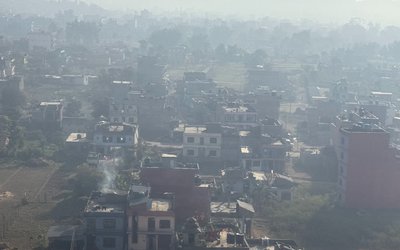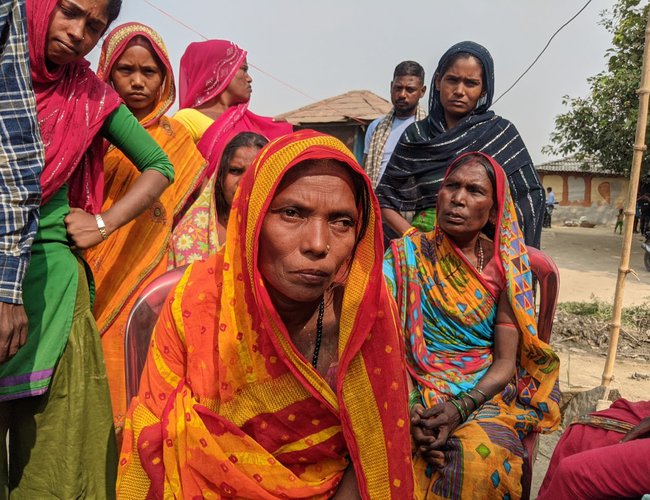
Lukhari Mandal, a 45-year-old woman from Madnal Basti in Kankai Municipality of Jhapa of Koshi Province, is recognized as one of the most influential figures in her region, even extending her political influence. Despite belonging to a marginalized group, Nirmala Devi Sada, a woman from Gajaria Tole of Laxminiya Rural Municipality Ward 3, Dhansuha of Madhesh Province, has managed to steer her community in the right direction.
Maya Chaudhary, a 48-year-old woman from Dekhatbhuli Katan in Krisnapur Municipality, Ward 3, Kanchanpur District of Sudur Paschim Province, has transformed her family from a landless, impoverished state to becoming land owners. By joining RbF in its early stages, Maya cultivated vegetables on rented lands and river bank.
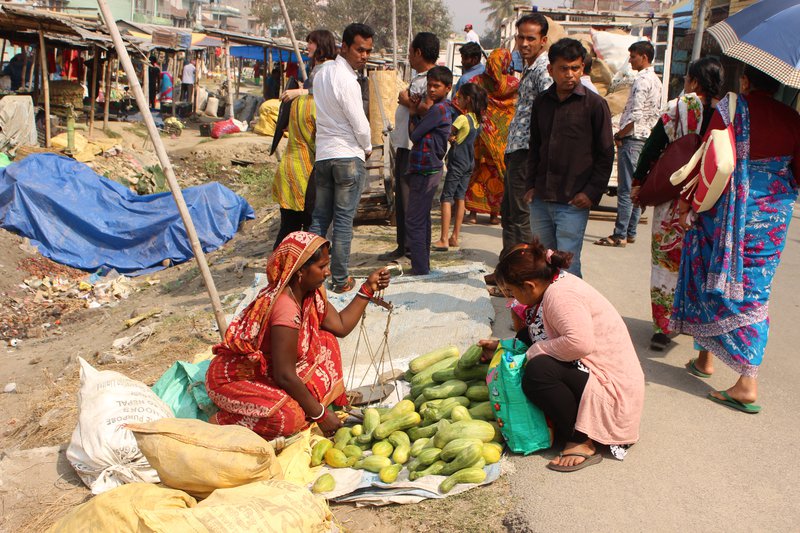
Over time, her success and the popularity of her work led her community to nominate her as a candidate for the Member of the Federal Parliament election under the Proportional Representation system. Maya is now the chairperson of Suryamukhi Agriculture Group, which has grown to include 28 members dedicated to riverbed farming.
She is also an active member of several local community groups, demonstrating the potential for meaningful change and empowerment through riverbed farming.
Maya started her journey in riverbed farming over 16 years ago, initially leasing 4 katha of land (0.34 acre) in river bank. As she began to reap profits, her and her husband invested further, eventually owning two bigha of land. Her leadership and role in farmer group meetings quickly solidified her position as a prominent farmer.
“My involvement with riverbed farming has been a game-changer in my life. Being able to lead groups in this farming method has significantly boosted my popularity. I come from a community of poor and landless Chaudhary community, and I believe we are incredibly thankful to Helvetas Nepal for introducing RbF in our region. It has enabled us to become landowners and empowered the women within our community,” Chaudhary stated.
Maya's husband, Ganga Ram Chaudhary, a Local Resource Person (LRP), has played a crucial role in their success by encouraging Maya's participation in riverbed farming training sessions. Together, they are now reaping a profit of NRs 700,000 (approximately US $ 5,000) during one winter season.
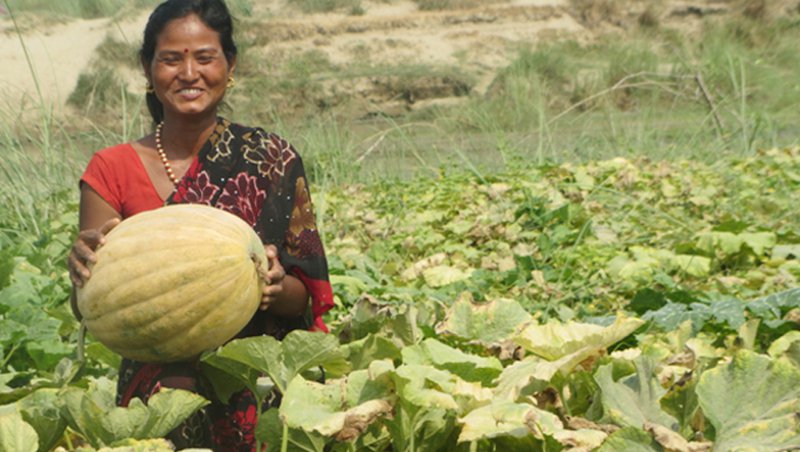
Maya Chaudhary from Kanchanpur
Active since 2008, Rupa Chaudhary, 42, has undergone a profound change, including her family members, after adopting Riverbed farming along the banks of the Mohana River. Born in Krisnhapur, Ward 8 of Rajghat of Kanchanpur district, Chaudhary grew up hearing the devastation caused by the river, which would wash away homes and property.
However, the river, once a symbol of despair, has now become a beacon of hope and empowerment for women in the area. Chaudhary, who once suffered from the floods, is now a beneficiary of the river after embracing river bed farming. "We are immensely grateful to Helvetas Nepal for showing us the path to community prosperity and women's empowerment. Although now many international organizations and various levels of government are present, it was Helvetas Nepal who came to our rescue, providing us with financial, technical, and skill support," Chaudhary stated.
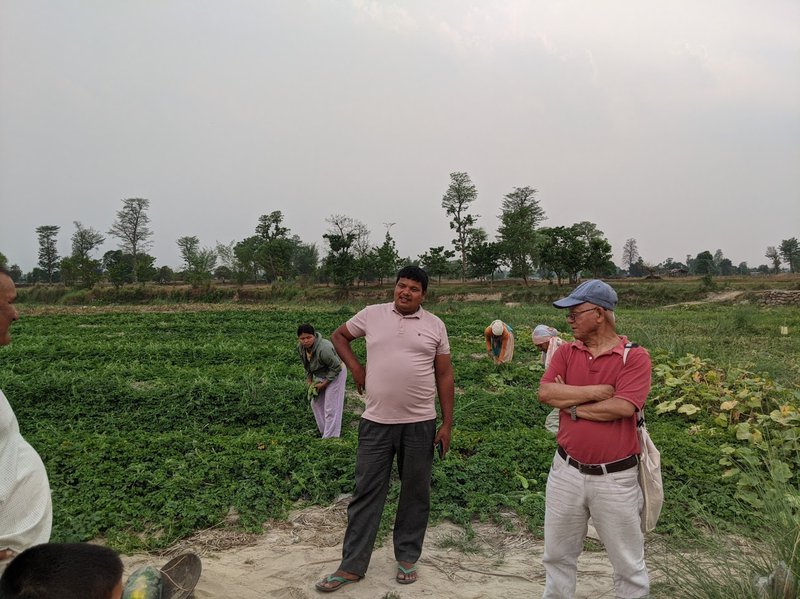
Forty-year-old Bal Bir Chaudhary, a member of the Raj Ghat as a Local Resource Person (LRP), mentioned that the Mohana Bagarkheti Krishak Samuha has 28 members, including Rupa. Bal Bir, who experienced the displacement caused by the Mohana River's floods twice within the last four decades, explained how the river's bank has become a source of women's empowerment.
"From the despair of our village and community, the river bank of Mohana River has emerged as a haven for women's empowerment," stated Chaudhary. The group generates an annual income of approximately Rs.20 million, with Chaudhary earning around a million rupees each year.
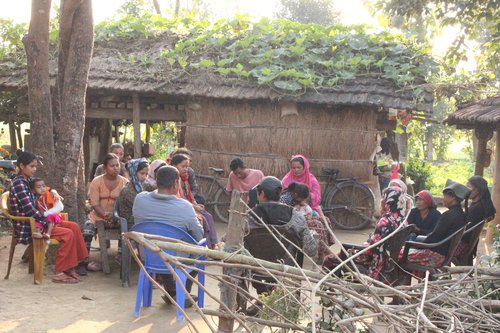
In partnership with Helvetas Nepal, and working alongside the District Development Committee (DDC) and the local community, agricultural activities started in the Bank of Mohana River. The group allocated the lands according to their preferences. Despite having a husband away from home and four small children, she chose to dedicate 5 Katthas of the river bed for agricultural purposes.
Thanks to technical assistance that included seeds and fertilizers, among others, the farmers began cultivating various crops, including watermelons. “In the first year, we were able to sell vegetables and watermelons worth around 120,000 (USD 900), which was a significant amount for us,” Rupa Chaudhary remarked.
Since beginning river bed cultivation, Chaudhary's family underwent a dramatic change. Over the last decade, her husband has been involved in farming. Their earnings from agriculture enabled them to marry and have two sons. They also managed to send one of their sons to Bulgaria last year, covering half of his education expenses. With the financial stability from their farm, Rana has been able to set aside savings and make important family decisions.
Mandal, Maya, Rupa, and Sada have not only experienced a sense of self-assurance due to their achievements in river bed agriculture but have also witnessed their relatives flourish. Thanks to extra earnings from her mother's job, Bhavana Rana, 22, living in Ghuia, Dhangadhi Sub-metropolitan Ward 9, can now follow her Bachelor of Business Studies at Kailali Multiple Campus in Dhangadhi.
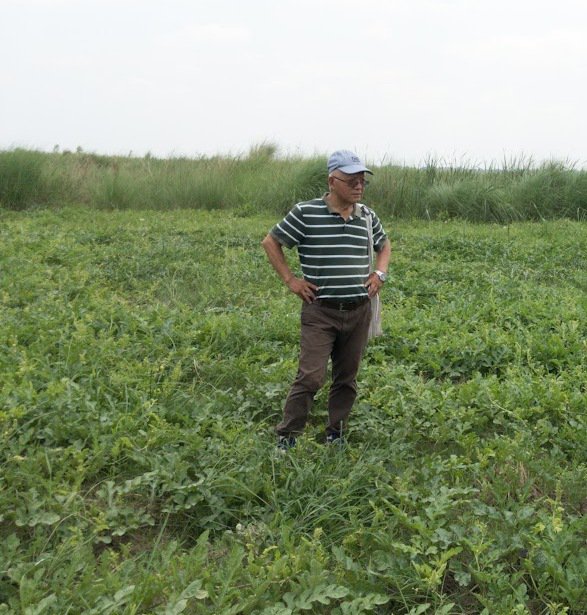
Hari Gurung, team leader of Helvetas Nepal
Lalmanti Rana, at the age of 52, was living in Dhangadhi Sub-Metropolitan ward no 9 Ghuiyaghat without any land for cultivation. Marrying at just 17 and having two daughters and two sons, she faced challenges in providing a stable income and land for her family. She toiled in the community's farms to earn a bit of cash while her husband worked as a laborer in Rajasthan, India.
The year 2008 marked a significant shift for her and the marginalized and impoverished Rana Tharu Community in the area. In August 2008, her neighbors came together in the village to discuss the feasibility of cultivating on the river bed of the Mohana River, which was previously considered unusable. Against her initial reluctance, she joined forces with other women, forming a group of 20 members.
For the past three years, Bhabana Rana,23, has been helping her parents with their farm by taking twice-weekly deliveries of agricultural products from the local makeshift (Hat bazaar) to Dhangadhi on her motorbike. "During harvest season, my earnings from selling farm produce can reach up to Rs.10,000 (USD 100) per day," Rana shared. "Even though large wholesalers come around to collect our vegetables, they only pay us half the market price."
Rana's family cultivates vegetables on a 1.5-hectare piece of land, which has allowed them to earn approximately Rs.600,000 (USD 4500). "The income from farming has enabled my parents to cover the education fees of four of their children and to purchase an additional one-hectare piece of land," Bhavana explained.
Rana is among the 10,000 families living in poverty who were provided with land to establish multi-crop farms through a scheme supported by Helvetas Nepal and its local partners. "Having this piece of land is incredibly empowering. It's where I plant the vegetables I enjoy growing," Rana shared.
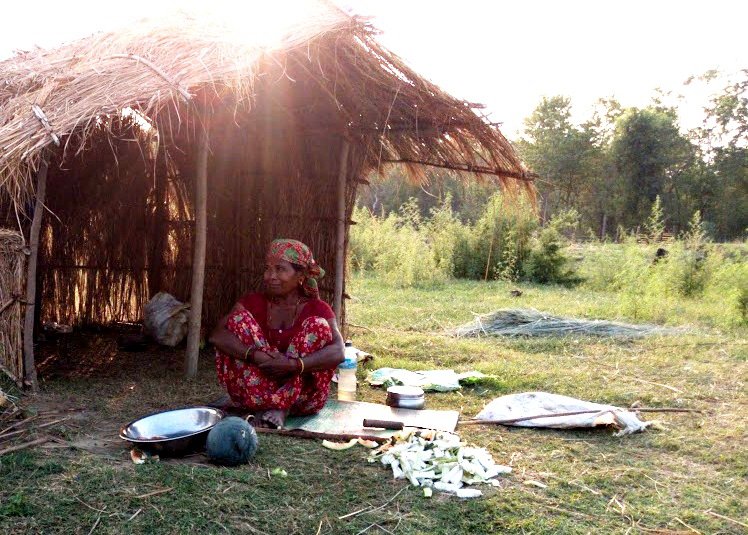
In 2006, Helvetas Nepal, in collaboration with the District Development Committee and a local NGO, initiated efforts to reclaim and allocate large areas of degraded land, including riverbeds severely affected by floods, to underserved and impoverished households, including Dalit and other marginalized groups.
Susmita Rana, 45, from Parasan Ward No. 7 in Punarbas Municipality of Kanchanpur district, has been tending to her vegetable and watermelon farm by the Dodo River since 2009. Supported by Helvetas-Nepal's River bed farming Project, Susmita, who comes from a landless, impoverished background, has seen her earnings climb to around Rs.250,000 (USD 2000) since starting her farm. Last month, she generated an additional Rs. 100,000 (USD 760) from the sale of watermelons, marking her income for the last two months of the winter season.
Beyond securing fresh and nutritious vegetables for her family's meals, Rana has managed to save some money for her children's education and household expenses. With her land and income, Rana feels more control over her future, saying, "I have the means to pursue my desires."
"Since Helvetas Nepal began the first River Bed Farming program in 2006, it has supported hundreds of women groups focused on their empowerment," Hari Gurung, the team leader of Helvetas-Nepal’s InElam Project noted. "This initiative has truly empowered tens of thousands of women."
The project has been instrumental in elevating the status of women within riverbed farming communities, which are predominantly led by women. Over the last two decades, these women have experienced significant improvements in their lives, including a boost in their quality and dignity of living conditions.
In the riverbed farming initiatives across Madhesh Province, women take charge of all five groups. Sada, who heads one of the 25-member groups, noted that this initiative has not only empowered women economically but has also sparked social and political reforms within their villages.
In the past, women were not allowed to communicate with their in-laws, often resorting to minimal communication while wearing veils to maintain modesty. Nowadays, they engage more openly with their families.
Nepal's rural regions have traditionally been patriarchal, and women were often expected to remain secluded at home, focusing on household tasks. However, the riverbed cultivation project has introduced new opportunities, particularly for women, to engage in farming, sell their products, and interact with peers.

"Riverbed Agriculture, though not designed to help specific poor households in the Terai, successfully spread its techniques across more regions. It aided the development of communities, especially women, by training Local Resource Persons (LRPs) who have continued to play significant roles. Our work continues to include guidance and technical support to local groups after the project ended its financial backing,” Dr. Prabin Manandhar, the Country Director of the Helvetas-Nepal, explained.

Keshab Poudel
Poudel is the editor of New Spotlight Magazine.
- ERC Nepal Is Focused On Expanding Distribution And Transmission To The Private Sector: ERC Chair Dr. Dhital
- Jul 06, 2025
- FOURTH PROFESSOR Y.N. KHANAL LECTURE: Nepal-China Relations
- Jun 23, 2025
- Colonel JP CROSS: Centenary Birthday
- Jun 23, 2025
- BEEN: Retrofitted For Green
- May 28, 2025
- GGGI has been promoting green growth in Nepal for a decade: Dr. Malle Fofana
- May 21, 2025










